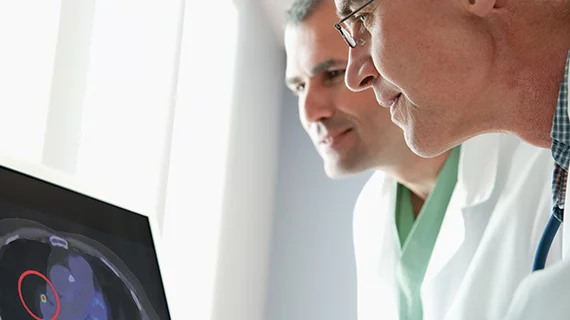As healthcare transitions toward value, radiologists need renewed focus on tumor reporting
Over the past decade, medicine’s move toward value-based care has coincided with a renewed expectation for more quantitative imaging interpretations, particularly in oncology.
For radiologists specializing in cancer, that means enhancing their tumor measurements and reporting, one Italian physician recently argued in an Academic Radiology editorial. And these imaging professionals, he noted, are uniquely qualified for the job.
“In this regard, tumor size becomes essential data to report in oncologic studies, and the resulting staging, is the highest representation of a quantitative radiologic evaluation,” Paolo Spinnato, MD, a diagnostic and interventional radiologist with IRCCS Istituto Ortopedico Rizzoli in Bologna, Italy, explained. “The radiologist is the most qualified and appropriate figure to perform these measurements in order to correctly stage the patient,” he added.
Such measurements are particularly impactful on lung cancer outcomes, for which tumor size is an independent prognostic factor for malignancy, he explained.
There are a number of challenges that can arise when performing imaging-based tumor measurements, Spinnato noted. Recognizing the “true extent” of the tumor—key for surgical planning—is difficult to solve, among many other hurdles. There are numerous strategies and new technologies to help, however, including dual-energy CT.
Rads need to stay updated on the latest staging systems and most accurate methods for measuring lesions and apply such insights to their everyday practice, Spinnato argued.
“The knowledge gained from research should be applied carefully and accurately in order to obtain the most accurate and useful quantitative information,” he wrote Jan. 16 “Most importantly, we must keep in mind that precise tumor measurement and accurate staging will result in the most appropriate treatment and prognostic information for the patient.”

